 Petzlover
Petzlover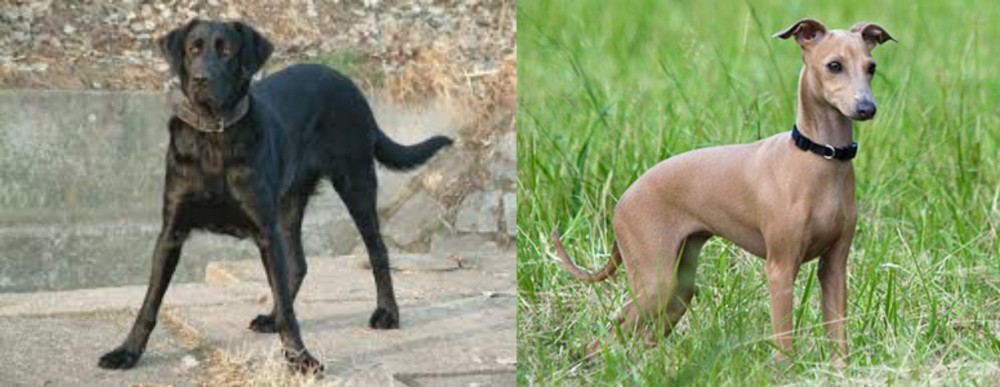 Cao de Castro Laboreiro is originated from Portugal but Italian Greyhound is originated from Italy. Cao de Castro Laboreiro may grow 22 cm / 9 inches higher than Italian Greyhound. Cao de Castro Laboreiro may weigh 63 kg / 139 pounds more than Italian Greyhound. Cao de Castro Laboreiro may live 3 years less than Italian Greyhound. Cao de Castro Laboreiro may have more litter size than Italian Greyhound. Both Cao de Castro Laboreiro and Italian Greyhound requires Low Maintenance.
Cao de Castro Laboreiro is originated from Portugal but Italian Greyhound is originated from Italy. Cao de Castro Laboreiro may grow 22 cm / 9 inches higher than Italian Greyhound. Cao de Castro Laboreiro may weigh 63 kg / 139 pounds more than Italian Greyhound. Cao de Castro Laboreiro may live 3 years less than Italian Greyhound. Cao de Castro Laboreiro may have more litter size than Italian Greyhound. Both Cao de Castro Laboreiro and Italian Greyhound requires Low Maintenance.
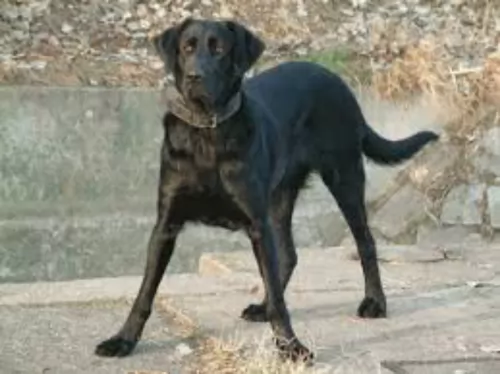 Cão de Castro Laboreiro originates from Portugal. Also known as the Portuguese Cattle Dog he was used long ago to guard livestock. Today, the modern Cao de Castro Laboreiro is descended from the molosser type dog.
Cão de Castro Laboreiro originates from Portugal. Also known as the Portuguese Cattle Dog he was used long ago to guard livestock. Today, the modern Cao de Castro Laboreiro is descended from the molosser type dog.
There are hints to the dog's origins from the 19th century, but changes in agricultural methods meant a disappearance of the dog as a livestock protector. Today the dog is mostly kept as a pet and was first seen at a dog show in 1914.
The Cão de Castro Laboreiro is recognized by the Fédération Cynologique Internationale as well as being recognized by the United Kennel Club in the United States.It is a rare dog and not many exist today but in Portugal, the USA and United Kingdom you will find a few breeders.
 The Italian Greyhound is an ancient breed, a purebred originating in Italy but with evidence to suggest it was also to be found in Turkey and Greece.
The Italian Greyhound is an ancient breed, a purebred originating in Italy but with evidence to suggest it was also to be found in Turkey and Greece.
It's a small breed dog that became popular with Italian royalty in the 16th century. Over the centuries, the dog's appearance has remain unchanged, although breeders tried to make it even smaller, leading to problems with the health of the dog.
Towards the end of the 1800s, it was fortunate that breed fanciers implemented breeding programs to restore the dog's look's and strength. The American Kennel Club registered the Italian Greyhound in 1886. Today the dog is a wonderful companion dog.
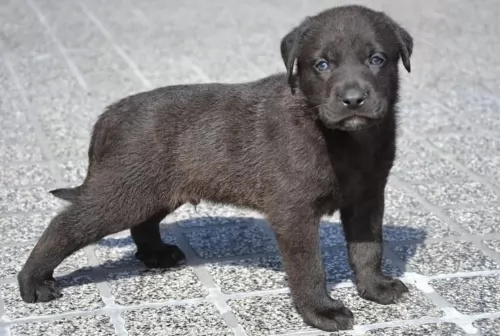 The Cão de Castro Laboreiro is a large dog, with height being in the region of 55 to 60cm and weight being in the region of 45 - 70kg. People describe the dog as wolf-like with a coat that is fairly short, thick and course. The coat is brindle with a base color of shades of grey, chestnut and black.
The Cão de Castro Laboreiro is a large dog, with height being in the region of 55 to 60cm and weight being in the region of 45 - 70kg. People describe the dog as wolf-like with a coat that is fairly short, thick and course. The coat is brindle with a base color of shades of grey, chestnut and black.
This large mastiff-type dog always has a black nose, his tail is long and carried high, but never curling over the back. He has a broad head and is much like the Labrador in looks, being free of wrinkles on the face.The ears of the Cao de Castro Laboreiro are medium-in-size and floppy while the eyes are dark brown.
The Cao de Castro Laboreiro makes an excellent pet as he forms strong bonds with his human family. He is territorial and makes an exceptional guard dog. He doesn’t particularly like strangers and is aloof around them.
This is an intelligent dog breed, he is strong-willed and stubborn, but when he is around the children in the family he is gentle and loving. When he has been trained and socialized, which is always highly recommended with every dog, he gets along with other pets in the home too.
 The sweet Italian Greyhound is much like the regular Greyhound, just smaller but every bit as sleek, elegant and fine-boned. He stands at between 33 and 38cm at the withers and weighs just 3 to 7kg. He is slender and elegant.
The sweet Italian Greyhound is much like the regular Greyhound, just smaller but every bit as sleek, elegant and fine-boned. He stands at between 33 and 38cm at the withers and weighs just 3 to 7kg. He is slender and elegant.
He has long, fine-boned legs and his short, smooth coat makes him easy to groom too. The coat comes in a number of colors such as fawn, tan, grey, reddish, chocolate and black.
Described as sweet, intelligent and playful, the Italian Greyhound adapts easily to life in the city or to country life.
He is easy to train too, and even though he is small and amicable, it is still a good idea to have him trained and socialized as he is just a simple pleasure to have around then. He just loves the company of his human family and becomes a gentle friend to other dogs, to children in the home and to the elderly.
He is a frail toy dog, and he needs to be constantly watched over that he isn’t handled roughly by disrespectful children or from bigger pets. He is an active breed and will love to be played with and join you on your walks. Even though he is such a frail, fragile looking dog, he has a feisty, stubborn, defiant side to him and that is why training and socialization becomes important. He will be reserved around strangers.
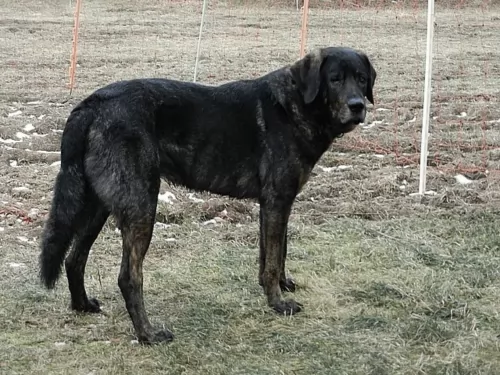 Environment and upbringing have plenty to do with how a dog turns out. People who just buy a dog for guardian purposes and nothing else can’t expect companionship in return.
Environment and upbringing have plenty to do with how a dog turns out. People who just buy a dog for guardian purposes and nothing else can’t expect companionship in return.
The Cão de Castro Laboreiro has always been a fearless guardian of livestock with his strong protective characteristics. He is intelligent and recognizes that a child in the family needs his protection.
This is a large dog who is strong, brave and intelligent but with his human family he is gentle, loving and loyal. Nonetheless he still requires a firm owner, and if you’re fair and firm with him you get the best with him. With this dog you can form a close friendship and bond.
 If you’re looking for a sweet, gentle canine friend, the Italian Greyhound promises to be just that. They just crave human companionship and are eager to please.
If you’re looking for a sweet, gentle canine friend, the Italian Greyhound promises to be just that. They just crave human companionship and are eager to please.
He isn’t the ideal playmate for children, simply because he is frail and can get hurt easily in rough play.
Small he may be, but he is intelligent and alert, and he will bark to warn you of strangers. They are essentially indoor dogs, and when you bring one of them into your home, you’ll be rewarded with a devoted, loving and loyal canine friend.
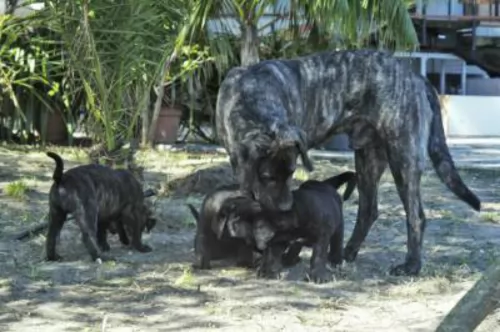 The Cão de Castro Laboreiro is generally a healthy breed, but even so, it is good to be aware of typical canine diseases that your pet may develop.
The Cão de Castro Laboreiro is generally a healthy breed, but even so, it is good to be aware of typical canine diseases that your pet may develop.
There are many eye problems that dogs have to contend with and if you see any kind of ulceration in your dogs eye, get veterinary advice.
A dog should always have access to a shady spot. Never ever leave your dog in a hot car. Heat builds up quickly and death can result soon as the body temperature rises.
Roundworm and tapeworm can infest dogs and you’ll need to speak to your vet about a worming program. Lice, mites and ticks are all parasites which attach themselves to the skin.
 Your small Italian Greyhound isn’t a sickly dog breed, and in fact, with the right care, he can live to be between 10 to 14 years of age.
Your small Italian Greyhound isn’t a sickly dog breed, and in fact, with the right care, he can live to be between 10 to 14 years of age.
As with any dog breed however, there will be some more common conditions to watch for in the Italian Greyhound. Some of these are epilepsy, hyperthyroidism and periodontal disease.
There are different types and causes of seizures, and there are actually no definitive tests for epilepsy. One seizure isn’t enough to make a diagnosis and more than one seizure is usually recorded before a diagnosis can be made and treatment prescribed.
These treatments don’t cure Epilepsy but rather control the symptoms and keep the dog seizure-free so that they can have a normal life.
Seizures are not all the same – some are life-threatening and advice from the internet can’t be looked upon as adequate. With a dangerous disease such as epilepsy, excellent and qualified veterinary help will be required.
Gum disease can be terrible for your pet. Apart from bone loss and loss of teeth, your pet will experience pain. Periodontal disease may well be common in dogs, but it can be prevented.
Once an animal has eaten food, particles of food, saliva and bacteria form plaque over the teeth and this doesn’t only cause damage to the teeth but to the entire immune system.
This disease can cause inflamed gums and loss of teeth. It is important to brush your pet’s teeth with special canine toothbrush and toothpaste.
The truth is, periodontal disease can cause more problems than just tooth pain which is bad enough. Dogs with gum inflammation may be at higher risk for heart- and kidney disease too. If you’re worried about your dog, take him in to your vet for an oral examination and teeth cleaning.
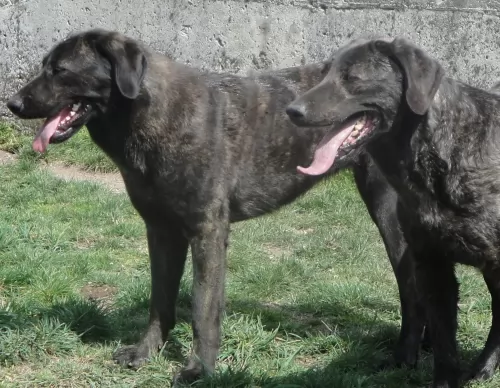 The Cao de Castro Laboreiro has a short coat which requires minimal grooming. Brushing him twice a week to rid him of loose hairs will suffice.
The Cao de Castro Laboreiro has a short coat which requires minimal grooming. Brushing him twice a week to rid him of loose hairs will suffice.
Nail clipping as well as ear- and teeth cleaning are other routine maintenance procedures for your pet.
The food you give your pet must be well-balanced and have protein and carbohydrates. If you want his skin and hair to remain healthy, vitamins, fatty acids and minerals will also be needed.
Boneless chicken and fish, brown rice and vegetables can be a good choice as well as some of the top quality commercially manufactured foods. An active dog will always need a higher protein content and therefore including raw meat into the diet is imperative – not every day as it can be very expensive, but every other day.
Remember that bones can be dangerous as they can splinter and cause your pet internal damage. Fresh, cool water must be available at all times.
 The Italian Greyhound has a short, smooth, satin-type coat which is easy to maintain. Gently brush him once or twice a week, being careful not to press down hard as he has frail, bambi-like legs.
The Italian Greyhound has a short, smooth, satin-type coat which is easy to maintain. Gently brush him once or twice a week, being careful not to press down hard as he has frail, bambi-like legs.
He also sheds little, making him a low maintenance breed. Because of the short coat, take particular care of him in the Winter and don’t allow him to become overly cold.
Your Italian Greyhound will require a diet rich in nutritional value, and if your particular dog is quite active you will need to feed him about 450 calories a day and sometimes more.
Each dog is an individual and will have different dietary needs. If you feed your pet a top quality commercially manufactured food, read the packaging for guidance on food portion sizes.
Speak to your vet if you are unsure how to feed your dog so that his food and the amounts you feed him contribute to his good health. He must always have access to fresh, cool water.